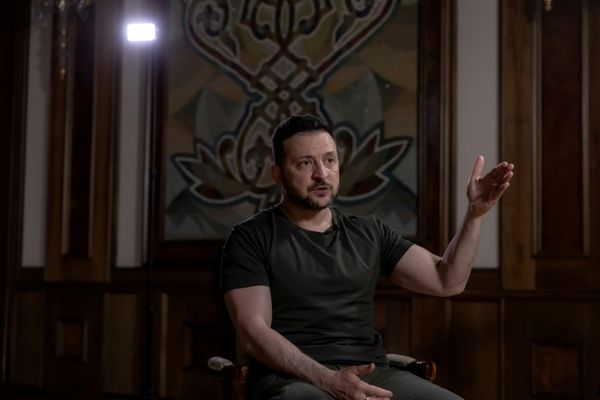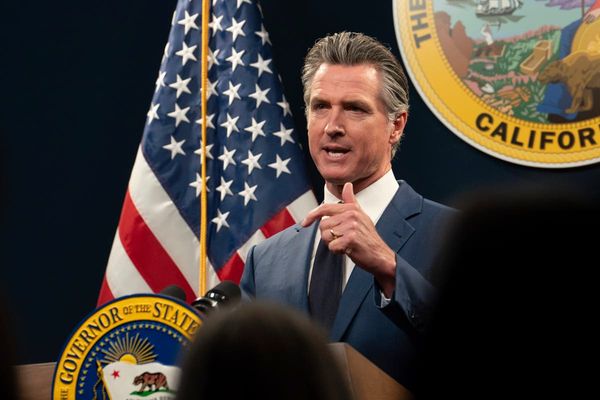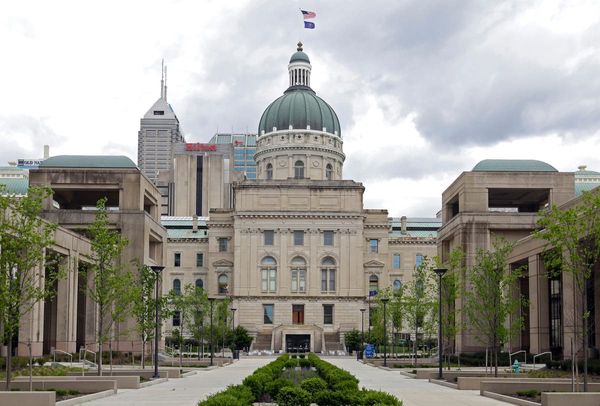
Politicians are used to being asked tough questions – and voters are, by now, used to their stalling in response. Still, you might not imagine that “name a New Zealand author” could ever be one of them – especially for a New Zealand politician holding an arts portfolio.
Yet that’s exactly how the ACT party’s arts spokesperson, Todd Stephenson, has surprised us, taking 20 minutes to name a single Kiwi author – or even a book – in an interview with Newsroom. In the quite remarkable exchange with Steve Braunias, Stephenson was blithely forthcoming about his limited experience of his portfolio: “It’s an area I’m wanting to learn more about.”
Having floated a tentative enthusiasm for musicals, Stephenson said that the last he’d seen was Hamilton in New York. Asked about literature, he said he preferred nonfiction – specifically political biographies, and books about campaigns. “It’s been a while since I’ve read a novel,” Stephenson admitted. Further pressed by Braunias to name a single New Zealand author, or book, Stephenson reached for a time-honoured line, straight out of one of those political playbooks he’s been reading: “Can I come back to you on that?”
Eventually, after 20 minutes, he was able to dredge up Alan Duff and Once Were Warriors: published in 1985. The transcript of the interview was published under the scathing headline: “Act’s arts spokesman once watched a musical.”
As much as Stephenson might have bristled at Braunias’s suggestion that he was an “arts ignoramus”, the contempt is understandable. That old meme – “you had one job” – comes to mind. Stephenson’s counterpart in the Labour party, Rachel Boyack, is now calling for him to be relieved of a portfolio he seems to be not only ignorant of, but disparaging.
Had Stephenson been ACT’s spokesperson for sports and unable to name a current All Black, there might have been calls for his citizenship to be revoked, not just his portfolio. But of course, in rugby-loving New Zealand, that would never happen: the ABs are committed to memory along with the ABCs.
The arts, meanwhile, are routinely neglected by those in power – especially under a National-led government. The party was returned to power at the general election in October after six years in opposition, forming a government with New Zealand First and ACT – making Stephenson too close to power to comfortably write his bizarrely brazen ignorance off. (Why was the man not briefed? Why pick up the phone to Newsroom’s literary editor without at least a Post-It Note listing recent Ockham winners to hand?)
I was living in New Zealand for nearly all of National’s last stint in government, from 2008 to 2017, and remember it as a fairly dismal time for recognition of the arts – despite New Zealanders’ undeniable and immense successes. Eleanor Catton became the youngest-ever winner of the Booker prize with The Luminaries in 2013, not long after an EP by a buzzy young Aucklander who went by Lorde had started blowing up on SoundCloud.
The two of them were continuing a long tradition of original and ambitious art to emerge from New Zealand and resonate around the world – from the films of Jane Campion, Taika Waititi and Peter Jackson; to The Clean, The Chills and the rest of Dunedin’s influential Flying Nun scene; and the writing of Keri Hulme, Janet Frame, Katherine Mansfield and Witi Ihimaera, to name just a few. Still, today, OMC’s How Bizarre gets heads of all ages nodding at my English gym.
For a population only recently in excess of 5 million people, New Zealand can be said to punch above its weight in the arts just as much as it does in sport. (If I were being provocative, I’d invite you to compare its international exports with those of Australia, many times its size.)
But those successes haven’t always been respected by its government.
When Catton, two years after her Booker win, dared to criticise the governing National party for prioritising profits over culture, then-prime minister John Key dismissed her as a Green party mouthpiece. His high-profile supporters flocked to back him up, with shock jock Sean Plunket’s calling Catton an “ungrateful hua” stoking the cycle of outrage further.
Catton has since been living in Cambridge, England, telling a New Zealand outlet last year that one of the attractions was her freedom to be anonymous. The respect that she is met with can’t hurt, either: Birnam Wood was widely acclaimed as one of the best novels of last year, and when Catton came to speak in my home city the audience not only sought out her thoughts on politics and culture but hung on her every word.
Literary Kiwis may heave a sigh of relief that National’s Paul Goldsmith, not Stephenson, is the minister for arts actually in charge of decisions – but the picture remains far from rosy. Last October, the outgoing CEO of the government’s primary funding body, Creative New Zealand, laid bare the brutal reality, showing “no significant change” in baseline funding since 2006-07 despite the blow dealt by the pandemic, high inflation and increasing cost of living.
This period, of course, also takes in Jacinda Ardern’s time in government, showing just how long Aotearoa’s creative sector has been weathering these “cycles of crisis”, to quote Victoria University’s James Wenley.
Meanwhile, New Zealand art continues to be championed and celebrated – overseas. Rose Matafeo and Alice Snedden’s lovable HBO comedy Starstruck has won hearts on both sides of the Atlantic. Twenty-eight-year-old poet Tayi Tibble recently became the first Māori writer to be published by the New Yorker, and was hailed by the New York Times as a literary “it girl”.
Among the buzzy new releases on display in my local bookshop are Pet by Catherine Chidgey, Greta & Valdin by Rebecca K Reilly and the Booker-nominated Bird Life by Anna Smaill. Not long ago, I spotted a well-thumbed copy of Charlotte Grimshaw’s The Mirror Book at a second-hand shop, then ran into a friend carrying a copy of Owls Do Cry by Janet Frame.
Indeed, this August, Fitzcarraldo Press – one of Britain’s most influential publishing houses, with an impressive track record of Nobel laureates – is publishing Frame’s The Edge of the Alphabet as part of its classics list. Stephenson might like to pick up a copy. There’s not much politics in it, but plenty of truth.
Elle Hunt is a freelance journalist and writer
• The subheading of this article was amended on 3 May 2024 because an earlier version incorrectly referred to ACT arts spokesperson Todd Stephenson as a government arts spokesperson.







